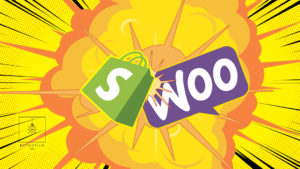So you are thinking of starting (or restarting) a blog (by the way, if you aren’t blogging yet you should be). You’ve heard of popular blogging platforms like Medium, WordPress, and HubSpot CMS. Which blogging platform should you choose? In this article we pit two of the most popular blogging platforms against one another to reveal their pros and cons. Medium vs WordPress, which is the best choice for your blog, business, or nonprofit?
The answer to this question will differ for each blogger, business owner, and leader. So we’re sticking to facts in this comparison and breaking the whole thing down into six rounds:
But first, what is a “blogging platform” anyway?
[text_with_frame id=”368c1dbfefba91dceb946d322e0e86bc” content=”‹¨›p‹˜›‹¨›em‹˜›If you find this article helpful consider giving it a share‹¯›nbsp;‹¨›/em‹˜›?‹¨›/p‹˜›” line_color=”rgba(0,0,0,.07)” text_font=”body” heading_font=”heading” animation=”none” animation_speed=”2″ animation_delay=”0″ __fw_editor_shortcodes_id=”e6852c2dacc162bc8c34ba646905e841″ _fw_coder=”aggressive”][/text_with_frame]
Blogging Platforms
In short, a blogging platform is any online software or service that makes it easier for you, the blogger or business owner, to launch and maintain a blog.
The best blogging platforms make publishing posts intuitive, reading posts pleasurable, and monetizing your brand possible.
Both Medium and WordPress are pro blogging platforms. They’re both helping people put their great content on the screen and deliver it to readers.
Medium

Medium is a relative newcomer to the blogging space.
Evan Williams (former CEO of Twitter and founder of another popular blogging platform, Blogger) launched Medium in 2012. Originally, Medium was branded as a publishing platform for content longer than Twitter’s then 140 character limit.
Medium has grown up in the six short years since then to become a well known publishing platform with a beautiful interface, tailored content recommendations, and indi publishing bent.
WordPress

WordPress is more than twice Medium’s age. It was launched in 2003 as an open source content management system (CMS) for bloggers.
WordPress has grown up a lot and now powers everything from blogs to e-commerce stores and claims nearly one third of all active websites.
With WordPress’ age comes the typical signs of mature software – some clunky interfaces, constant security patches, a robust support network, and unparralelled features.
WordPress is currently available in two forms. The first, a blogging service offered by WordPress’ parent company Automattic, at WordPress.com. The second, the open source blogging software that you can install on any website you want, at WordPress.org. For more on the differences between these options and which one you should choose check out the conclusion to this article. Because the software from WordPress.org is the first choice of serious bloggers, businesses, and nonprofits we’re going to focus on it throughout this article.
Medium vs WordPress
Let the competition begin!
Well, this factual comparison at least.
Ease of Use
One of the most significant hurdles small businesses and nonprofits encounter when exploring content marketing is the learning curve of getting up and running. Blogging platorms like Medium and WordPress should help lessen that learning curve for bloggers.
If you want to start blogging Medium is stunningly easy to get up and running with.
To test out just how easy we set off to see how quickly we could create a branded publication for Rystedt Creative and copy and paste in a popular article on Medium. Time? About 15 minutes. That is mind numbingly quick and easy.

Medium’s content editor is fast and simple. It uses a block based model where each section can be dragged and dropped to reorder the content. Adding photos, videos, or stock images? No problem! Just click the + button and you’re a click away from inserting your media.

Medium handles all of your software updates and security for you. It’s their website, not yours, so they handle all the nitty gritty stuff that can overwhelm a new blogger.
WordPress‘ initial learning curve is greater.
To get started with your own blog you’ll need to download WordPress, install it on a server, customize a theme (or develop one), and then start publishing. (Or you can just contact Rystedt Creative). Launching your first WordPress blog as a non-developer comes with its own challenges.
WordPress’ content editor (at the time of publishing this article) is clunkier and more cluttered than Medium’s (but it is also capable of much more). The WordPress editor uses a simple text box with formatting controls at the top. WordPress plugins can extend its capability for on the fly SEO, interactive forms, custom content types, and more. Yet all of this versatility has a cost for ease of use. The WordPress editor isn’t necessarily easy. That’s all about to change with a new editor called Gutenberg that looks and works much like Medium’s editor. But in the meantime composing in WordPress feels a bit like writing a blog post in Microsoft Word 2003.

Technically, WordPress is software – not a service. So you won’t get any assistance with updates and security unless you go through WordPress.com or a managed WordPress hosting service (like Rystedt Creative or DreamHost).
Ease of Use Victor
If you want to just set your hands on your keyboard and get your first blog up in the next hour, Medium wins.
Medium is dead simple and can be picked up in an afternoon. It earns that simplicity by only doing a few things well. But if all you need is a place to write, Medium provides it with ease and simplicity.
Branding
One reason businesses and nonprofits should be blogging is to build brand recognition, trust, and authority.
In order to do this you need readers to recognize your brand and remember it. You want them saying things like “I read a really motivating post on being compassionate from ___________________ Church” or “Surely, ___________________ knows how to source high quality products because they’re constantly writing on how others can improve their supply lines.” You get the idea.
In order to do this your blog needs to be branded uniquely to fit your organization.
Medium offers some simple but helpful branding settings. If you create a publication to publish under you can set your logo, page layout, and accent color. Those settings will show up on your publication’s homepage and your logo will be displayed next to Medium’s logo in the navbar.

Those branding options are pretty sparse. In general your homepage and posts look like Medium’s brand – not yours. Yes, readers can see it is your content thanks to your little logo at the top but it is right next to Medium’s.
We’re glad Medium gives you some branded customization but it is far from the white label approach most businesses need.
WordPress, by contrast, is completely customizable. You can develop or customize any WordPress theme you like to fit your brand’s unique look and feel. You don’t even need to show any WordPress branding on your site at all. Setting up a branded WordPress site takes time and effort but it is well worth it and, most importantly, uniquely yours.
Branding Victor
If you want a blog that looks and feels like it is uniquely yours and you want your readers to remember you, WordPress wins.
WordPress is one of the most customizable and versatile blogging platforms in existince. It has remained the top choice of bloggers worldwide because it can uniquely fit the needs of countless different use cases. Part of that versatility is in styling, formatting, and branding. Your WordPress blog can look however you want it to look.
Aesthetic
Besides branding, the radability of your blog matters. Is the font and colors easy on the eyes? Do they draw the reader in? Is the focus on the content?
Medium‘s aesthetic is all about readability and simplicity. Nearly everything but the text is stripped away and the design choices are clearly guided by readability. Medium is really a joy to read content on. I do rejoice when I load a Medium article because I don’t need to toggle my browser reader mode or throw the link in my Instapaper to strip out all the junk. Surely, many other readers feel the same way.

This round is a difficult one because WordPress is so versatile. Can WordPress provide you with a beautiful and readable blog? Yes! But many WordPress themes are much more cluttered than Medium. How well WordPress performs in this round depends on what theme you choose or develop and what your goals are. The pro here: WordPress can fit your target market’s aesthetic. You call the design shots here.

Aesthetic Victor
If you want a blog that looks and feels beautiful and simple right away without any customization, choose Medium.
If you want a blog that has a particular beauty and style aimed at your unique audience, choose WordPress.
This round is a tie.
Monetization
Businesses want a robust online platform so, ultimately, they can sell their products and servics. Even serious bloggers look for ways to monetize their online presence (hey, they can turn their hobby into a business!).
Blogs are usually monetized using well placed and relavant “calls to action” (CTAs) asking readers to learn more, subscribe, or buy. The goal when monetizing your blog is to draw your readers further down the sales funnel. Many bloggers also monetize using affiliate links and ads.
Medium makes monetization of your blog a bit more difficult. They’re focused on readers (as you should be too) so annoying popups and ads are nonexistant. Penny monetization blogging methods don’t exist here (and that’s not such a bad thing).
Medium replaces traditional ad revenue with the Medium Partner Program. When publishers join the Partner Program they earn money when Medium members read their content. Man, I wish my newspaper worked like that!
You can still place your own text or image based CTAs within your Medium posts but don’t overdo it if you want to get noticed. You also won’t be able to use most interactive forms within your posts.
There are countless ways to monetize your WordPress blog. We recommend you take the high road: publish excellent content that builds confidence in your products and services. But WordPress can do it all – including traditional affiliate and ad monetization strategies. Plus, you can expand your WordPress website into an e-commerce store! Which means readers can buy your products directly on your blog. Now that’s something Medium will never do.

Monetization Victor
If you want to robustly monetize your blog either now or in the future, WordPress wins.
WordPress gives you the flexibility and power to invite your readers to buy your products or services, show tasteful ads, and even directly sell your products with a shopping cart!
SEO
SEO is all about showing search engines that your content is what searchers are looking for. SEO isn’t an automated thing. Optimizing your blog for search engines is going to take some hands on reasearch, tweaks, and maintenance.
Some blogging platforms provide more SEO tools than others… and some just make SEO downright difficult.
Medium was not designed for SEO. Yet Medium does have a high domain authority and so some bloggers do see a temporary spike in traffic by switching their blogs to Medium. But Medium does not provide their publishers with structured metadata customization or robust analytics – two standard SEO tools. The serious optimizer isn’t going to be happy with Medium’s offering.
If you do choose to blog on Medium go read Medium’s SEO tips for writers and expert online marketer Neil Patel’s guide to driving traffic via Medium.
If you have a WordPress blog you can use plugins like Yoast SEO and Monster Insights to tweak and analyze your blog’s optimaztion. WordPress provides some of the most open and robust SEO opportunities of any popular blogging platform – whether you know analytics and code or not.

SEO Victor
If you are serious about your blog ranking on page one in certain Google searches, WordPress wins.
WordPress provides you with the open environment and plugins you need if you really want to analyze, tweak, and optimize your blog for search domination.
Ownership
When you’re publishing great content your readers can’t find from anyone else, ownership of that content metters. If you want to republish that content elsewhere you should be able to. If you want to move your entire blog to another platform you should be able to. If you don’t want your content used in a certain way you should be able to say “no”.
The Medium Terms of Service state that “you own the rights to the content you create and post on Medium”. That’s great! Every blogging platform should keep ownership of content where it belongs – with the authors. By using Medium you do grant them permission to reuse, publish, or delete your content as they see fit. Since they’re providing your blogging service and platform that seems like a reasonable tradeoff.
Since you own the content you’ve published on Medium you may want to move it to another platform in the future. Medium allows you to export your posts as HTML. You’ll then need to copy and paste your old posts into your new platform’s CMS, automate importing that HTML in some way, or pay a developer to transfer everything for you.
![]()
Because WordPress is open source software you own everything original to your blog. Your content and your customizations are yours. You can access this content anytime through your blog, your WordPress admin panel, or even your server. There aren’t any agreements to sign here – your stuff is yours and that’s that. No one else can delete your content on WordPress either (unless you break an agreement with your web host or some law).
You can export your entire WordPress blog’s content with the WordPress exporter or through the server itself. The WordPress exporter, found in the admin panel, exports more than just your posts! You can also export pages, comments, menus, and more. This content can then be seamlessly imported to another WordPress site or manually transferred to any website of your choosing.

Ownership Victor
If you want the confidence of knowing that not only is your content still yours but that only you can delete it, WordPress wins.
This was a close round though. Medium is generous with its Terms of Use and there isn’t much to hesitate over there. But WordPress gives its users more access to the data that they own. If you don’t have control over your data what good is ownership of it anyway?
And the winner is…
Let’s tally the score. Which blogging platform is the best choice? Medium or WordPress?
| Medium | WordPress | |
|---|---|---|
| Ease of Use | x | |
| Branding | x | |
| Aesthetic | x | x |
| Monetization | x | |
| SEO | x | |
| Ownership | x | |
| Victor | WordPress |
If we give every category equal weight WordPress wins five to two. But this article only compares these blogging platform features – it doesn’t factor your unique web needs into the equation.
Which blogging platform fits you the best will largely depend on how important ease of use and scalability are to you.




